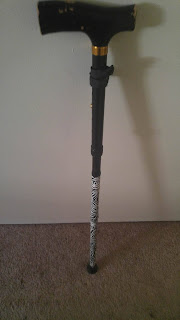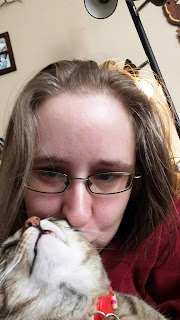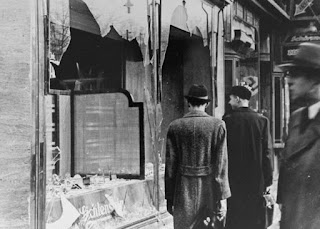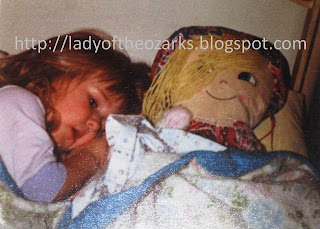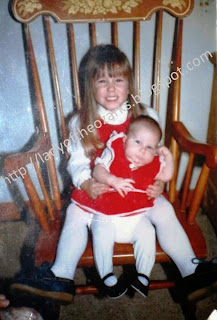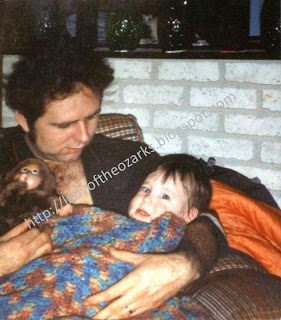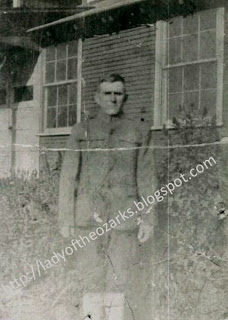1.
Many, including
Ehlers-Danlos Syndrome Hypermobility Type (H-EDS),
Postural Orthostatic Tachycardia Syndrome (POTS), Epilepsy, Fibromyalgia, Chronic Myofascial Pain (CMP),
Polycystic Ovarian Syndrome (PCOS), TMJ Dysfunction, Bipolar type I, Migraines, Irritable Bowel Syndrome (IBS),
Complex--Post-Traumatic Stress Disorder (C-PTSD), Panic Disorder, Generalized Anxiety Disorder (GAD), Social Anxiety Disorder (SAD), Hashimoto's Disease (Autoimmune Hypothyroid), and
Seasonal Affective Disorder (SAD).
2. I was diagnosed with it in the year:2001
3. But I had symptoms since:I was 10 when symptoms started.
4. The biggest adjustment I’ve had to make is:Remembering to do my light box. When we have visitors and I'm supposed to do my light box I get really embarrassed, as I feel I'm putting a sign on my back that says "mentally ill." When that happens I usually won't use my light box. The light box works best when you do it in the early morning and again at dusk. I have frequent insomnia, so a lot of the time I'm too sleepy to wake up in the morning, because I just fell asleep. For instance, last night I couldn't sleep until after 6 a.m., so when I finally fell asleep I slept for eight hours straight. I even turned off my alarm in my sleep, and when DH tried to wake me he couldn't. So I didn't get to do my morning light box time, and at dusk we had company, so I was too embarrassed to use it.
5. Most people assume:That taking an antidepressant will make you "normal" again. It often takes a combination of medicine, light therapy, and/or therapy to keep it under control in the dark part of the year.
6. The hardest part about mornings are:Getting out of bed when I'm depressed and lonely. It's also, as I mentioned above, difficult to do my light box in the mornings (as well as the evenings).
7. My favorite medical TV show is:I haven't seen it in many years, but I guess it would be "Scrubs," because it's so funny.
8. A gadget I couldn’t live without is:A computer/Kindle/phone that can get access the website
MoodScope. On MoodScope I track my depression by picking an answer on each of 20 cards. It really helps me to recognize what components of depression I'm having problems with and my overall depression levels over time on a graph.
9. The hardest part about nights are:Nighttime is when I'm the most depressed, and often cry myself to sleep when I'm depressed, like I did last night.
10. Each day I take __ pills & vitamins. (No comments, please)38 currently.
11. Regarding alternative treatments I:I meditate, and that helps sometimes. I've thought about trying
binaural beats as well.
12. If I had to choose between an invisible illness or visible I would choose:Invisible, definitely. People may not realize how much I'm suffering when you can't visually see my disabilities, but I'm glad I still look "normal."
13. Regarding working and career:I am disabled and on disability for my bipolar.
14. People would be surprised to know:How much depression can affect every aspect of your life: sleep, energy, mood, crying, fatigue, anxiety, panic attacks, not able to function, sex, self-esteem, weight gain or loss, and many other issues.
15. The hardest thing to accept about my new reality has been:It's not so much a new reality, since I've been dealing with it since I was 10. That means the majority of my life, 24 out of 34 years, I've dealt with this.
16. Something I never thought I could do with my illness that I did was:Exercise. It's hard enough to exercise when you're in a lot of pain, but when you're also depressed it's like climbing a mountain. When I exercise while depressed I am very proud of myself.
17. The commercials about my illness:I've never seen a commercial for SAD.
18. Something I really miss doing since I was diagnosed is:This isn't applicable, since I've had SAD the majority of my life.
19. It was really hard to have to give up:Sleep so I can do my light box when I often don't fall asleep until early morning from insomnia. That makes it very hard to wake up.
20. A new hobby I have taken up since my diagnosis is:Crochet. I'm not good at it and I get frustrated easily, but it's fun.
21. If I could have one day of feeling normal again I would:Spend the whole day outside interacting with nature.
22. My illness has taught me:That sometimes we have no idea how much someone else is struggling.
23. Want to know a secret? One thing people say that gets under my skin is:"Pull yourself up by your bootstraps." That's not possible with mental illness, if it was that easy no one would be disabled by it.
24. But I love it when people:Don't make me feel weird about using my light box, and/or show interest in learning about SAD.
25. My favorite motto, scripture, quote that gets me through tough times is:"'Cause tomorrow's another day
I'm thirsty anyway
so bring on the rain"
~Jo Dee Messina
26. When someone is diagnosed I’d like to tell them:There is hope. While SAD is often a lifelong condition, there are ways to live with it.
27. Something that has surprised me about living with an illness is:How little people care or want to understand.
28. The nicest thing someone did for me when I wasn’t feeling well was:DH brought me the neighbors' puppy from next door when I was too depressed to get out of bed the first winter we were together. It was so sweet and touched my heard so much.
29. I’m involved with Invisible Illness Week because:I think it's important for people to know that SAD can be manageable. I also feel that bringing awareness to this illness will help others understand people with SAD and help more people who have SAD be diagnosed.
30. The fact that you read this list makes me feel:
Appreciative! Thank you very much for taking time out of your day to learn about SAD.




